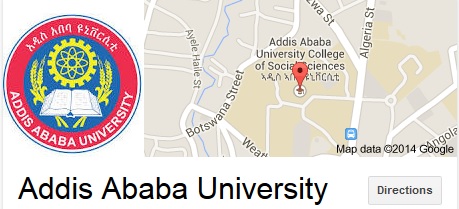Career Services
The career development services at AAU aims to provide comprehensive resources and services that are complementary to and integrated with, the academic provision of the University, enabling students and graduates to develop, evaluate, and implement career decisions and employment plans.
Career development services will seek to ensure that students are treated equitably regardless of their gender, race, color, ethnic or national origins, age, disability, socio-economic background, religious or political beliefs and affiliations, or other inappropriate distinction.
The career development services should be managed by a team of professional career development advisers who will offer advice and support on career-related issues throughout students’ time at the University.
Where appropriate, Students may refer to other individuals, services or professional bodies inside and outside the University for special and further advice.
Users of the Service
- All AAU students (full time, continuing and distance) have free access to the service.
- AAU graduates for up to a year after graduation.
- Students may choose to access the service at any point during their time at the University or may be referred to the service by a member of academic staff including course instructor, advisor, or student counselor.
The Center for Internship Placement, Career Development & National Services is expected to:
- provide information and advice to help students decide on their career path
- Market students and graduates to all types of employers and other opportunity providers through events and presentations
- develop an awareness of students in their abilities, skills and potential
- investigate careers, work experience and graduate opportunities
- manage students’ career development and personal development planning
- deliver guidance by professional and experienced staff
- provide the service in confidential and impartial manner with access to private interviewing facilities
- treat students fairly and, where appropriate, offer support to those students who may be disadvantaged in entering the work place
Appointment for Career Guidance
- A careers guidance appointment is a maximum of a one hour in depth discussion conducted by a Careers Adviser. It is intended to help the student make and implement informed career decisions both during and after their course. Further appointments may be arranged if required.
- If it is agreed that a careers guidance appointment should be made, a convenient time will be agreed. The careers guidance appointment will be offered within ten working days of the initial request. The student will be provided with an appointment card.
- Students shall be given clear reasons if an appointment is delayed or cancelled. In these circumstances an alternative appointment is made at a time convenient to the student.
- Students will be asked to contact the Center for Internship Placement, Career Development & National Services as soon as possible if they are unable to attend a careers guidance appointment.
- The structure, timescale and confidentiality of the discussion should be agreed between the student and the Careers Adviser at the beginning of the appointment.
Follow Up Advice
Careers follow up advice shall be given after initial advice via face-to-face contact, telephone, e-mail or any other means agreed by the student and career advisor.
Information Management Policy
The Information management should highlight the importance of information as a vital underpinning element of the career development service provision.
The information resource should provide material on:
- Occupations – a range of paper-based and electronic information resources covering a comprehensive range of occupations relevant to graduates, including details of relevant professional bodies and organizations.
- Employers – contact and recruitment details for major national graduate recruiters including those in the public sector
- Vacancies – a wide range of vacancy information disseminated by an online searchable vacancy database; other resources include all relevant national newspapers
- Job Seeking Skills – paper-based, electronic and audio-visual information on all aspects of job seeking and selection
- Further study – information on postgraduate and vocational training.
- Funding – details of appropriate funding for further study options and other career development opportunities.
- Voluntary work – information on organizations offering voluntary opportunities nationally and internationally.
- Work and Study Abroad – covering all countries
- Graduate destinations – detailed information on the destinations of AAU graduates
All members of the Centre for Internship Placement, Career Development & National Services have, as an essential element of their role, the responsibility to participate fully in the regular maintenance of information resources, as well as the updating and developmental process.
- Each resource, whether paper-based, electronic or audio-visual, is checked for its relevancy to the current students at least every two years.
- Any information resource over two years old is discarded and replaced with more up to date information; or if the resource is not replaceable and still serves a need, then it is labeled accordingly.
- The information resources database should be developed and updated as part of regular maintenance, and is verified during the updating process.
- Any gaps in the information resource should be identified and relevant information sourced using the Internet and other reliable sources such as professional networks.
- Specific referrals to other resources and agencies, both internal and external, must be checked and verified during the updating process.
- All new information is verified and checked for accuracy as far as is practically possible, before being put into the information resource.
To ensure that information is delivered to students in an appropriate and effective manner:
- At all times the Service is open, the center should help students access the information most relevant to them, and give advice on how to make the most effective use of the services.
- The delivery of information out of hours is primarily through the website


















 The main Admission Office It is located on the Main Campus (at Sidist Kilo) of Addis Ababa University.
The main Admission Office It is located on the Main Campus (at Sidist Kilo) of Addis Ababa University.







